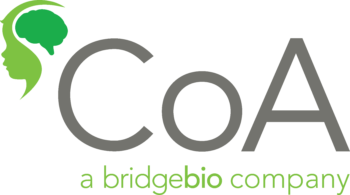Umfrage hilft Klinische Studie für PKAN-Patienten vorzubereiten

Die kalifornische Firma CoA Therapeutics bereitet derzeit eine klinische Studie mit einem neuen Medikament für PKAN-Patienten vor. Um diese Studie so patientenorientiert wie möglich zu gestalten, hat CoA Therapeutics im letzten Jahr eine Umfrage entwickelt, in der die PKAN-Patienten und ihre Familien ihre Stimme zu Gehör bringen konnten. In die Vorbereitungen hat die Firma Vertreter der internationalen NBIA-Patientenorganisationen aktiv miteinbezogen. Auch 2 Vertreter von Hoffnungsbaum e.V. haben auf der Basis ihrer eigenen Erfahrungen als Eltern von PKAN Kindern und als langjährige Patientenvertreter dabei mitgeholfen, die Umfrage bestmöglich vorzubereiten und sie bei den Familien bekannt zu machen. Daher freuen wir uns sehr, dass CoA Therapeutics nun die Umfrageergebnisse vorstellt und möchten diese Zusammenfassung gern mit Ihnen teilen:
Zusammenfassung der Umfrage von CoA Therapeutics für Menschen mit PKAN
Das Team von CoA Therapeutics möchte sich bei den von PKAN betroffenen Personen und Familien für ihre Teilnahme an der jüngsten Umfrage bedanken. Das Engagement der Gemeinschaft hat uns mit 183 eingegangenen Antworten sehr beeindruckt. Unser besonderer Dank gilt unseren Partnern in den Patientenorganisationen, die die Umfrage kommentiert und bei ihrer Verbreitung geholfen haben.
Zu den wichtigsten Ergebnissen der Umfrage gehörten Informationen über den Zeitpunkt des Ausbruchs der Krankheit bei Menschen mit PKAN: Die Hälfte der Befragten gab an, dass die ersten PKAN-bedingten Symptome vor dem Alter von 10 Jahren auftraten, mehr als ein Drittel erlebte die ersten Symptome im Alter von 10 Jahren oder später, und zehn Prozent waren sich nicht sicher, wann die ersten Symptome auftraten. Die Befragten kamen aus vielen Ländern, die meisten aus Polen (21 %), der Dominikanischen Republik (18 %), den USA (15 %), Italien (9 %), Spanien (7 %) und Deutschland (6 %). Antworten betroffener Familien kamen auch aus 17 weiteren Ländern, darunter Frankreich, Brasilien, Kanada, Kuba, Ägypten, Indien, Iran, Jordanien, Mexiko, die Niederlande, Neuseeland, Norwegen, Saudi-Arabien, Slowenien, die Schweiz, die Ukraine und das Vereinigte Königreich.
Die Mehrheit der Personen mit PKAN gab an, die Diagnose vor dem 12. Lebensjahr erhalten zu haben (59 %), und bei den meisten bestätigte ein Gentest die PKAN-Diagnose (81 %). Die Befragten gaben am häufigsten an, dass Probleme mit Gleichgewicht/Stürzen, der Motorik und den Muskeln die ersten PKAN-Symptome waren, die bei den Betroffenen auftraten.
Die Mehrheit der Befragten gab an, mehrere Medikamente einzunehmen, wobei am häufigsten Antikonvulsiva, Skelettmuskelrelaxantien und Antipsychotika genannt wurden. Nur 22 Personen gaben an, keine Medikamente einzunehmen. Etwa 1 von 4 Befragten gab an, ein Gerät zur Tiefenhirnstimulation (DBS) implantiert zu haben, und ein ähnlicher Anteil gab an, eine Ernährungssonde zu haben.
Auf die Frage nach den schwierigsten medizinischen Untersuchungen gaben die Befragten an, dass bildgebende Verfahren (z. B. Röntgen, MRT, CT-Scans) am schwierigsten seien, da die erforderliche Körperhaltung nicht gehalten werden könne, sie angespannt seien und eine Sedierung benötigten.
Bei einer offenen Frage nach den drei wichtigsten Symptomen, die für Menschen mit PKAN am schwierigsten / herausforderndsten sind, wurden am häufigsten Dystonien (86 Nennungen), Auswirkungen auf die Sprache (83 Nennungen) und Schwierigkeiten beim Essen (64 Nennungen) genannt. Bei der Frage nach den drei wichtigsten Symptomen, die hoffentlich durch eine neue Behandlung verbessert werden könnten, wurden am häufigsten Auswirkungen auf das Sprechen (87 Nennungen), Dystonien (70 Nennungen) und Schwierigkeiten beim Essen und Gehen (jeweils 47 Nennungen) genannt.
Etwa die Hälfte der Befragten gab an, in der Vergangenheit an einer klinischen Studie teilgenommen zu haben, und diese Personen berichteten, dass Reisen und Untersuchungen die schwierigsten Aspekte der Studienteilnahme waren. Auch die am häufigsten genannten Möglichkeiten zur Verbesserung der Teilnahme an einer klinischen Prüfung waren weniger Reisen/Visiten und bessere Visitenerfahrungen vor Ort, wie z. B. mehr Unterstützung im klinischen Zentrum, angenehmere Aufnahmebedingungen und ein Platz zum Ausruhen.
Wir danken Ihnen nochmals für Ihre Teilnahme an unserer Umfrage. Ihre Erfahrungen sind für unsere Arbeit von unschätzbarem Wert und helfen uns direkt, da wir an der Entwicklung einer Therapie für PKAN arbeiten. Als nächste Schritte bereiten wir eine detailliertere Präsentation vor, die wir im Laufe des Jahres mit der Gemeinschaft teilen werden. Wir sind bei CoA Therapeutics auch bestrebt, diese Forschungsergebnisse einem breiteren Publikum zugänglich zu machen, um andere Wissenschaftler, Kliniker und Unternehmen, die an der Entwicklung von Therapien für PKAN arbeiten, zu informieren.
Übersetzung aus dem Englischen mit Unterstützung von https://www.deepl.com/translator, kostenlose Version
